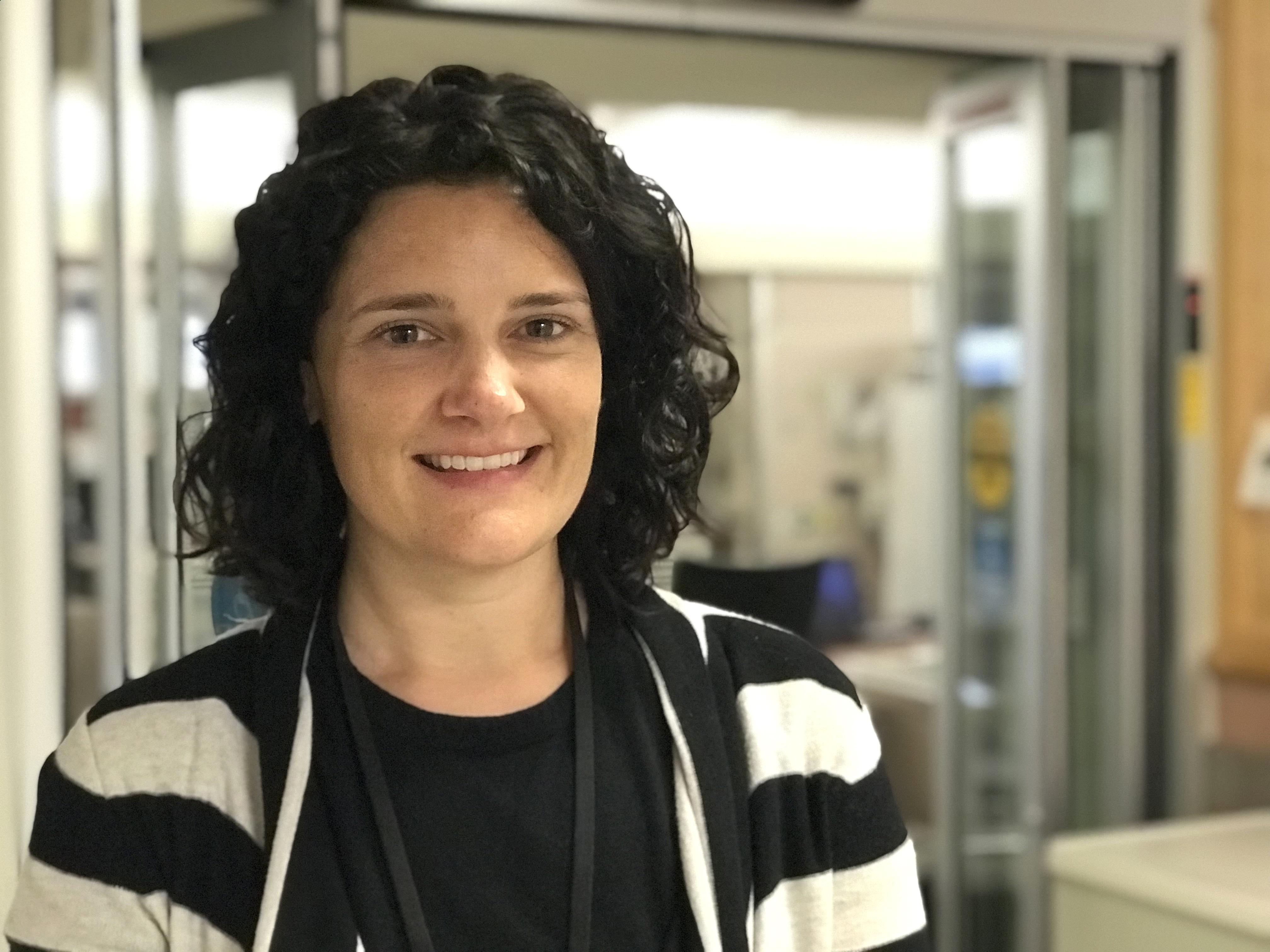When a pregnant woman comes to Hennepin Healthcare who’s using or suspected of using opiates, inpatient social worker Liz Foltz springs into action.
 “It’s very sad when you see a mom coming in and you can see her actively going through withdrawal,” says Foltz, who works with mothers and babies in the Birth Center and Neonatal Intensive Care Unit. “The social worker’s role is to try to provide encouragement and support. 100 percent of the moms I meet with really love their babies. They want a healthy life for their babies and want to do the right thing. It’s just that the power of the addiction is so strong. It’s just so, so hard for some of these moms to get sober.”
“It’s very sad when you see a mom coming in and you can see her actively going through withdrawal,” says Foltz, who works with mothers and babies in the Birth Center and Neonatal Intensive Care Unit. “The social worker’s role is to try to provide encouragement and support. 100 percent of the moms I meet with really love their babies. They want a healthy life for their babies and want to do the right thing. It’s just that the power of the addiction is so strong. It’s just so, so hard for some of these moms to get sober.”
The AFSCME Local 2474 member works with new moms and babies after delivery. Before delivery, other workers who are part of the team work with the pregnant woman starting with her first prenatal visit, help the patient find treatment and maintain sobriety, and find resources after birth. That team can include addiction treatment and child protection workers, other social workers and medical professionals from HCMC, Hennepin County’s Project Child and other agencies.
“Think of a mom who has just delivered a baby and leaves,” Foltz says. “They’re leaving to go use again. We’ve had it happen as soon as a couple of hours after delivery, and we don’t hear from those moms again, which is very sad when you think about the strength of the addiction. It's so powerful the mom is going to leave her baby at the hospital.
“We see both ends of the spectrum, moms who give up and moms who say no, this is really hard but I'm going to do it. You have a different perspective when you meet the women who are using and hear their stories and see their faces and see their pain. You have a greater understanding of the humanity behind this horrible epidemic.”
The amount of time Foltz spends working with moms with drug use and addiction issues keeps climbing. It can be anywhere from 10 percent to 75 percent of her day.
Foltz works with moms who want to get clean. She makes sure they see their babies and affirms they’re making a hard but great decision to get sober for their newborns. An addicted mom may feel she can’t celebrate her baby’s birth, so Foltz tries to help her do so.
“You do some of the same things you do with any mom, talk about how beautiful their baby is, make sure they have the basic items like a car seat, clothes and diapers,” Foltz says. “The hardest thing is when moms are so sad and devastated that their addiction has hurt their baby. Or having to put a baby on a hold and tell a mom their baby is not going to go home with them because of their drug use.”
Foltz says the job is rarely feel-good. She keeps coming back every day because she can make a difference for mothers and babies.
“I do enjoy working for these women,” she says. “If we can try to change something for these women or have a positive outcome for this pregnancy or maybe next pregnancy, it gives you hope things will be different.”

